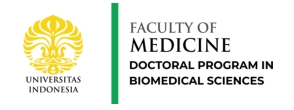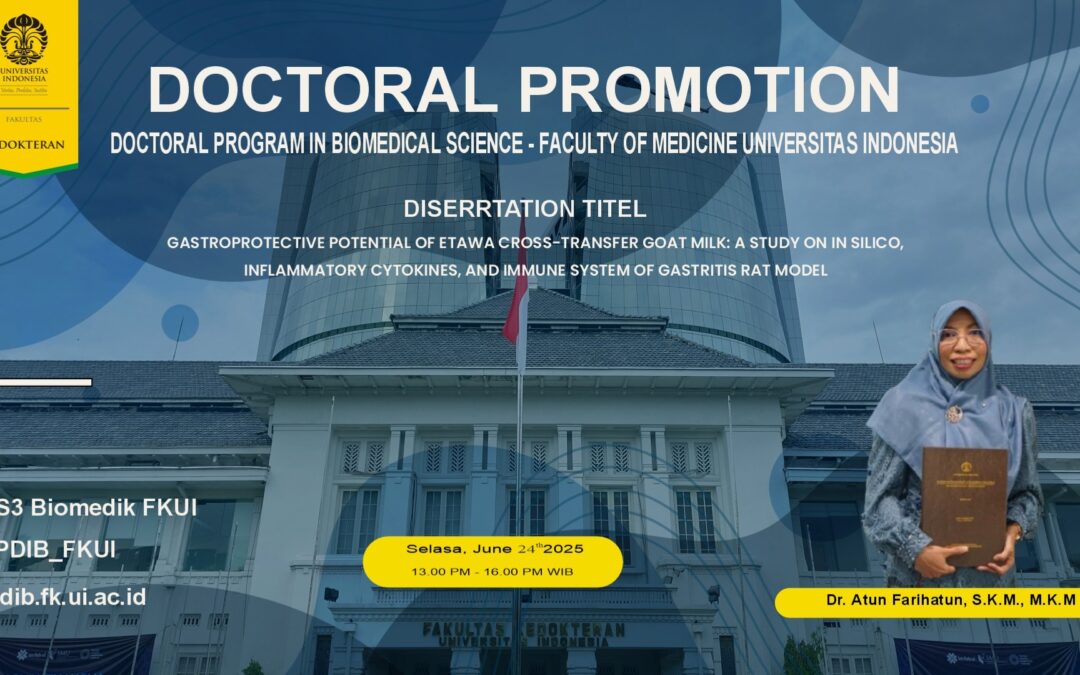Atun Farihatun, Doctoral Program Student of Biomedical Sciences, Faculty of Medicine, University of Indonesia under the guidance of Prof. Kusmardi, M.Si, Dr. Ari Estuningtyas, M.Biomed., and Prof. Mohd Nazil Salleh, Ph.D, has succeeded in proving the potential of Etawa goat milk as a gastric protective agent (gastroprotective) through scientific and pre-clinical research on mice with a model of gastric inflammation. The dissertation presented at the doctoral promotion exam on June 24, 2025 provides new hope for alternative use of natural resources, namely Etawa goat milk for gastric inflammation. This research is motivated by the increasing prevalence of gastric inflammation and the prediction of an increase in gastric inflammation observed in many countries. Gastric inflammation if not properly treated can cause various complications including chronic atrophic gastritis, gastric metaplasia/dysplasia, iron deficiency anemia, gastric bleeding, gastric perforation and even developing into gastric cancer. In this study, goat milk was given to Sprague dawley rats that had been induced with 80% ethanol to cause gastric inflammation.
The intervention was carried out for 30 days with three dose variations: 0.5 ml, 1 ml, and 1.5 ml per day. The genomic and proteomic methodology and analysis were carried out comprehensively, including testing of active compounds using the LCMS method, molecular simulation (in silico), and examination of immune and inflammatory parameters such as IL-10, IL-6, TNF-α, COX-2, iNOS, CD4+, and CD8+. The results showed that goat milk significantly: Increased levels of IL-10, an anti-inflammatory protein; Reduced levels of IL-6 and TNF-α, which play a role in the inflammatory process; Reduced expression of COX-2 and iNOS, enzymes involved in gastric mucosal inflammation; Increased the proportion of CD4+ and CD8+ immune cells, which are associated with the acute inflammatory process. This finding is supported by the identification of active compounds in goat milk such as N1-(3-chlorophenyl)-2-[2-(trifluoromethyl)-4-quinolyl] hydrazine-1-
carboxamide, D-(+)-Maltose, and α-Lactose which have strong binding affinity to inflammatory protein targets based on molecular docking tests.This study provides an initial scientific basis that goat milk is not only nutritious but also has potential benefits in modulating the immune system and protecting the gastric mucosa.This dissertation opens up opportunities for further scientific research in the form of clinical trials on humans and the development of standardized goat milk products as part of a natural approach to treating gastritis and other digestive disorders.

